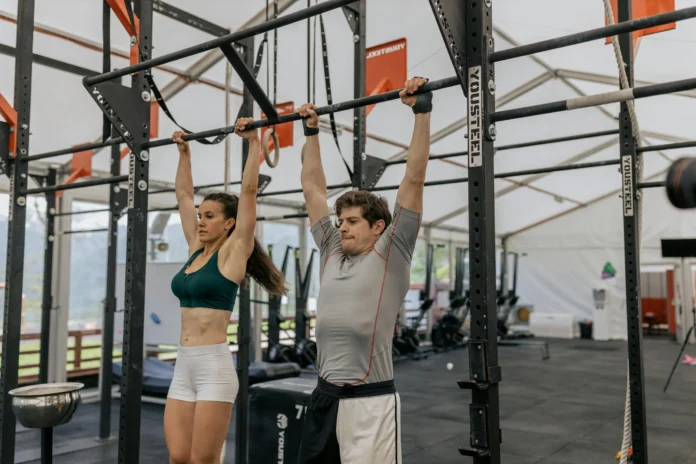Introduction
Sports medicine near me is a specialized branch of healthcare focused on preventing, diagnosing, and treating injuries related to physical activity. Whether you’re a professional athlete, a weekend warrior, or someone who enjoys staying active, having access to quality sports medicine near you is essential for maintaining peak performance and recovering from injuries. This article explores key aspects of sports medicine, including common treatments, how to find the best providers, and what to expect during a consultation.
1. What Is Sports Medicine?
Sports medicine is a multidisciplinary field that combines medical expertise with exercise science to help individuals recover from sports-related injuries and improve their physical performance. Unlike general medicine, sports medicine professionals—including orthopedic surgeons, physical therapists, and sports physicians—specialize in musculoskeletal health, biomechanics, and injury prevention. They work with athletes and active individuals to develop personalized treatment plans that may include rehabilitation, strength training, nutrition guidance, and surgical interventions when necessary.
2. Common Conditions Treated in Sports Medicine
Sports medicines clinics address a wide range of conditions, from acute injuries to chronic overuse problems. Some of the most common issues include sprains, strains, fractures, tendonitis, ligament tears (such as ACL injuries), and concussions. Additionally, sports medicine specialists help with joint pain, muscle imbalances, and post-surgical recovery. Whether you’ve twisted an ankle playing basketball or developed shoulder pain from repetitive motion, a sports medicine provider can offer targeted treatments like physical therapy, corticosteroid injections, or minimally invasive procedures to restore function and reduce pain.
3. How to Find the Best Sports Medicine Clinic Near You
Finding the right sport medicine provider requires careful consideration. Start by searching for clinics with board-certified specialists in sports medicine or orthopedics. Look for facilities that offer comprehensive services, including diagnostic imaging (X-rays, MRIs), physical therapy, and rehabilitation programs. Reading patient reviews and checking credentials can help you assess the quality of care. Additionally, consider proximity—choosing a clinic near your home or workplace ensures convenience for follow-up visits. Many hospitals and specialized sports centers also have dedicated sports medicine departments with advanced treatment options.
4. What to Expect During Your First Visit
Your first appointment with a sports medicines specialist will typically involve a thorough evaluation of your injury or condition. The doctor will review your medical history, assess your symptoms, and perform a physical examination to identify the root cause of your pain or dysfunction. Depending on the findings, they may recommend imaging tests or diagnostic procedures. After diagnosis, the provider will discuss treatment options, which could include rest, physical therapy, medications, or, in severe cases, surgery. They may also provide guidance on injury prevention techniques, such as proper warm-up routines, strengthening exercises, and ergonomic adjustments to your training regimen.
5. The Role of Physical Therapy in Sports Medicine
Physical therapy is a cornerstone of sport medicine, helping patients regain strength, flexibility, and mobility after an injury. A licensed physical therapist will design a customized rehabilitation program tailored to your specific needs, incorporating exercises, manual therapy, and modalities like ultrasound or electrical stimulation. Therapy sessions focus on reducing pain, improving range of motion, and preventing future injuries by correcting movement patterns. Many athletes continue with sports-specific training as part of their recovery to ensure a safe return to their sport.
6. Preventing Sports Injuries: Tips from Experts
Injury prevention is a key focus in sport medicine. Experts recommend several strategies to minimize the risk of injuries, including proper warm-ups and cool-downs, wearing appropriate footwear, using correct techniques during exercise, and gradually increasing workout intensity. Strength training and flexibility exercises can also enhance joint stability and muscle endurance. Additionally, staying hydrated, maintaining a balanced diet, and getting adequate rest are crucial for overall athletic performance and recovery. Sports medicine professionals often work with coaches and trainers to implement injury prevention programs for teams and individual athletes.
Conclusion
If you’re searching for “sports medicine near me,” it’s important to choose a reputable provider who can address your unique needs as an athlete or active individual. From injury treatment to performance optimization, sport medicine offers a holistic approach to keeping you in the game. Whether you’re recovering from a recent injury or looking to prevent future problems, consulting a sport medicine specialist can help you stay healthy, strong, and ready for your next challenge. Prioritize your well-being by seeking expert care and following professional advice to maintain an active lifestyle safely.


